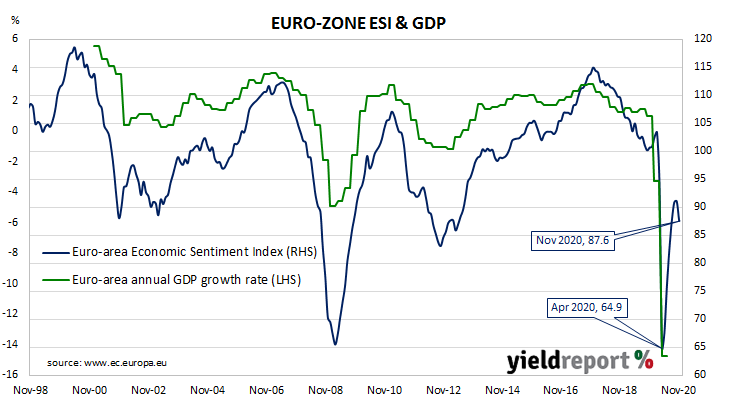Summary: Euro-zone composite sentiment index down; above expectations; results from major euro-zone economies all down; sovereign bond yields little changed; index still implies GDP contraction.
The European Commission’s Economic Sentiment Indicator (ESI) is a composite index comprised of five differently-weighted sectoral confidence indicators. It is heavily weighted towards confidence surveys from the business sector, with the consumer confidence sub-index only accounting for 20% of the ESI. However, it has a good relationship with euro-zone GDP, although not as a leading indicator.
The ESI produced a reading of 87.6 in November, above the market’s expected figure of 86.2 but less than October’s revised reading of 91.1. The average reading since 1985 has been just under 100.
Westpac’s Lochlan Halloway described the report as “a weak update” and said there was “potential for further weakness ahead given activity restrictions.”

Confidence deteriorated across all five of the industry, retail trade, construction, services and consumer sub-indices. On a geographical basis, the ESI fell noticeably in France and Italy but declined by less in Germany and Spain.
German and French 10-year bond yields finished the day little changed. By the close of business, the German bund yield remained unchanged at -0.59% while the French OAT yield had crept up 1bp to -0.34%.

